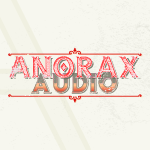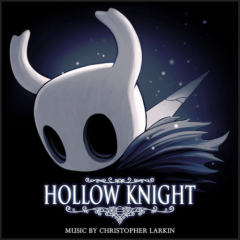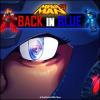-
Posts
8,297 -
Joined
-
Last visited
-
Days Won
17
Reputation Activity
-
 zircon got a reaction from Anorax in OCR monetizing mixes on YouTube
zircon got a reaction from Anorax in OCR monetizing mixes on YouTube
Re: legal stuff. A lot has been said on this. Here's a quick primer. Any and all use of copyrighted materials, by anyone for any reason other than licensees or copyright holders, is de facto infringement. Let's get that out of the way. If you make a fan remix and upload it on YouTube with no monetization, that is by default considered to be infringement. Let's make that 100% crystal clear.
Fair Use is a legal concept that exists as a defense against claims of copyright infringement. So if Party A uses Party B's copyrighted material, and Party B says "Hey, I'm going to sue you", Party A can say "nuh-uh, it was fair use." Whether or not that defense is valid is determined on a case-by-case basis. There are no universal rules, just standards that are used to evaluate each case individually.
So if you want to take a hardline view, then OCR since day 1 (with or without ads) has been infringing copyright. But obviously that's not the whole story, since in all of OCR's lifetime and even after considerable publicity, it has never been sued, despite many major copyright holders being well-aware of the site's existence. That's because Dave has done his homework, consulted with lawyers, and come to the conclusion that OCR would likely fare well in court (if it came to that) with a Fair Use defense. And chances are those entities have taken no action because they believe OCR's use is in fact fair, and does not interfere with their own rights to commercialize their work.
My own view, as a music industry professional (though not a lawyer), is that having monetized videos on YouTube is not going to make any material difference in a court of law compared with advertising on the site itself. If a copyright holder believes that OCR's use of copyright is infringing, my own (educated) guess is that they are not going to say that site ads are OK, but YouTube ads aren't. Very unlikely, especially given the extreme proliferation of unlicensed covers on YouTube including some on major channels.
Put simply: in my view, informed through my experience in the industry, if you think YouTube video monetization is illegal, or otherwise infringing/wrong, then everything OCR has ever done is illegal.
---
On the topic of YouTube and shielding from liability specifically, the advantage of YouTube in that department is that you can work with multi-channel networks (MCN) who have the resources and connections to take care of copyright issues. That's why so many major channels are part of networks, so that when a developer or publisher flags their Let's Play video (or whatever), they have a team that can deal with the claim and come to an arrangement. That was one big reason why Dave was considering this at all, because we'd be able to work with an MCN.
There's the conspiracy theory explanation, and then there's the explanation that Dave (the only person who has any actual authority related to the site, its financials, etc.) is married, with a full-time job, and two very young kids, on top of existing responsibilities running the site, that have taken up the majority of his time and he hasn't gotten around to having a deep conversation with Chimpazilla on this. I was talking to her today and I'm sure Dave would have chimed in, were he not en route to Otakon.
-
 zircon got a reaction from Sagnewshreds in OCR monetizing mixes on YouTube
zircon got a reaction from Sagnewshreds in OCR monetizing mixes on YouTube
Why doesn't it matter? I think it matters more than anything. If literally nobody involved with OCR makes any money whatsoever, that is entirely different than if we did.
Again maybe we just feel very different on this. Let's say two charities want to use your music. One charity is staffed by all volunteers. Every single cent they earn goes to operations. 0% to administration. The other charity spends 30% on administration, 70% on operations. To me that is two completely different things and I feel entirely different about each one.
-
 zircon got a reaction from Kenogu Labz in OCR monetizing mixes on YouTube
zircon got a reaction from Kenogu Labz in OCR monetizing mixes on YouTube
Concerns about the legal ramifications should perhaps be discussed separately than everyone's subjective opinions on this. Like Dave said, in monetizing this small number of videos, OCR has also joined a network which provides substantial protection against takedowns and support for fair use. Generating revenue does not preclude fair use; profit (not revenue) is just one factor that can contribute to a fair use defense.
Everyone might think about their opinion like this:
* I'm ok with OCR monetizing YouTube videos to provide revenue for its operations, and I am not worried about the legal ramifications (copyright claims)
* I'm ok with the monetization, but worried about the legal stuff.
* I'm not ok with the monetization, even though I'm not worried about the legal angle.
* I'm not ok with the monetization, and I'm also worried about the legal stuff.
-
 zircon got a reaction from timaeus222 in OCR monetizing mixes on YouTube
zircon got a reaction from timaeus222 in OCR monetizing mixes on YouTube
Well, let's go over the 4 factors for fair use that courts use to determine whether a use is infringing or fair, and how web ads vs. YouTube ads would make a difference.
1. Purpose and character of the use
This asks whether a use is of a commercial nature, or for nonprofit educational purposes. At the same time, it also favors transformative uses over non-transformative ones. Well, the transformative factor of the use (remix of copyrighted material) is no different whether it's viewed on our site or on YouTube, so that's a wash. That leaves commercial vs. non-commercial. We know that obviously selling something is commercial, but is showing ads alongside something commercial? There's no hard line rule on that, however...
https://wiki.creativecommons.org/wiki/Defining_Noncommercial
Creative Commons commissioned a professional market research study to determine people's views on this matter. What they found was that:
Both creators and users generally consider uses that earn users money or involve online advertising to be commercial. My take: Based on this, as far as OCR is concerned, it wouldn't make a difference whether the "online advertising" is on a website or on YouTube. 2. Nature of the copyrighted work
This is not relevant here to questions of OCR on its own site or YouTube as it has to do with the source work.
3. Amount and Substantiality
Same thing. The content of the remix is no different in both cases.
4. Effect upon work's value
Does an infringing work affect the copyright owner's ability to commercially exploit their original work? Once again, OC ReMixes being freely available for download already, I don't see how YouTube would change anything. In fact, if I were playing devil's advocate, I might say that offering downloads is a lot more harmful than non-downloadable streams (videos).
-
 zircon got a reaction from Platonist in OCR monetizing mixes on YouTube
zircon got a reaction from Platonist in OCR monetizing mixes on YouTube
Re: legal stuff. A lot has been said on this. Here's a quick primer. Any and all use of copyrighted materials, by anyone for any reason other than licensees or copyright holders, is de facto infringement. Let's get that out of the way. If you make a fan remix and upload it on YouTube with no monetization, that is by default considered to be infringement. Let's make that 100% crystal clear.
Fair Use is a legal concept that exists as a defense against claims of copyright infringement. So if Party A uses Party B's copyrighted material, and Party B says "Hey, I'm going to sue you", Party A can say "nuh-uh, it was fair use." Whether or not that defense is valid is determined on a case-by-case basis. There are no universal rules, just standards that are used to evaluate each case individually.
So if you want to take a hardline view, then OCR since day 1 (with or without ads) has been infringing copyright. But obviously that's not the whole story, since in all of OCR's lifetime and even after considerable publicity, it has never been sued, despite many major copyright holders being well-aware of the site's existence. That's because Dave has done his homework, consulted with lawyers, and come to the conclusion that OCR would likely fare well in court (if it came to that) with a Fair Use defense. And chances are those entities have taken no action because they believe OCR's use is in fact fair, and does not interfere with their own rights to commercialize their work.
My own view, as a music industry professional (though not a lawyer), is that having monetized videos on YouTube is not going to make any material difference in a court of law compared with advertising on the site itself. If a copyright holder believes that OCR's use of copyright is infringing, my own (educated) guess is that they are not going to say that site ads are OK, but YouTube ads aren't. Very unlikely, especially given the extreme proliferation of unlicensed covers on YouTube including some on major channels.
Put simply: in my view, informed through my experience in the industry, if you think YouTube video monetization is illegal, or otherwise infringing/wrong, then everything OCR has ever done is illegal.
---
On the topic of YouTube and shielding from liability specifically, the advantage of YouTube in that department is that you can work with multi-channel networks (MCN) who have the resources and connections to take care of copyright issues. That's why so many major channels are part of networks, so that when a developer or publisher flags their Let's Play video (or whatever), they have a team that can deal with the claim and come to an arrangement. That was one big reason why Dave was considering this at all, because we'd be able to work with an MCN.
There's the conspiracy theory explanation, and then there's the explanation that Dave (the only person who has any actual authority related to the site, its financials, etc.) is married, with a full-time job, and two very young kids, on top of existing responsibilities running the site, that have taken up the majority of his time and he hasn't gotten around to having a deep conversation with Chimpazilla on this. I was talking to her today and I'm sure Dave would have chimed in, were he not en route to Otakon.
-
 zircon got a reaction from LuckyXIII in OCR monetizing mixes on YouTube
zircon got a reaction from LuckyXIII in OCR monetizing mixes on YouTube
@AngelCityOutlaw is the crux of your objection that the monetization is taking place through a third party, who have their "hands in the revenue stream"? How or why is it any different than ads through Google (who take a cut) or support through Patreon (who also takes a cut)?
-
 zircon got a reaction from Sagnewshreds in OCR monetizing mixes on YouTube
zircon got a reaction from Sagnewshreds in OCR monetizing mixes on YouTube
Concerns about the legal ramifications should perhaps be discussed separately than everyone's subjective opinions on this. Like Dave said, in monetizing this small number of videos, OCR has also joined a network which provides substantial protection against takedowns and support for fair use. Generating revenue does not preclude fair use; profit (not revenue) is just one factor that can contribute to a fair use defense.
Everyone might think about their opinion like this:
* I'm ok with OCR monetizing YouTube videos to provide revenue for its operations, and I am not worried about the legal ramifications (copyright claims)
* I'm ok with the monetization, but worried about the legal stuff.
* I'm not ok with the monetization, even though I'm not worried about the legal angle.
* I'm not ok with the monetization, and I'm also worried about the legal stuff.
-
 zircon got a reaction from OceansAndrew in OCR monetizing mixes on YouTube
zircon got a reaction from OceansAndrew in OCR monetizing mixes on YouTube
Well, let me rephrase. you asked: "Was it generated because someone visited the site? Or was it generated because someone wanted to listen to my remix?"
What's the distinction between someone visiting the site to check up on new music (as opposed to any one song), then listening to a song and seeing an ad... versus visiting their YouTube home page, seeing a new track from OC ReMix, and listening to it? Is there a fine line there? As it is now (and as it has been for many years), user #1 is generating revenue for the site by visiting and clicking through to listen to a remix...
Keeping in mind that some % of ad revenue as it is now DOES come from single-mix pages, where would that fine line be?
The site staff, djp included, have not ever been paid... In a way it's even more "non-profit" than most non-profits.
Here's a question for those who are not okay with this, to consider. Imagine Patreon folds tomorrow. As Dave mentioned, Google ad revenue is just about dead. Since so many people have moved to listening to music on YouTube and fewer people are visiting site proper, how would you propose OCR generates revenue for itself if it cannot monetize sources outside visits to its own site/domain?
Think longer term. In 5 years, for all we know, visitorship will be down to 1/10 what it is now, but the YouTube channel is now huge (already, 100k+ subs is a pretty big channel.) In that case, Google ad revenue will be completely dead. What is the solution to bring in revenue, if not YouTube?
-
 zircon got a reaction from zykO in OCR monetizing mixes on YouTube
zircon got a reaction from zykO in OCR monetizing mixes on YouTube
Well, let me rephrase. you asked: "Was it generated because someone visited the site? Or was it generated because someone wanted to listen to my remix?"
What's the distinction between someone visiting the site to check up on new music (as opposed to any one song), then listening to a song and seeing an ad... versus visiting their YouTube home page, seeing a new track from OC ReMix, and listening to it? Is there a fine line there? As it is now (and as it has been for many years), user #1 is generating revenue for the site by visiting and clicking through to listen to a remix...
Keeping in mind that some % of ad revenue as it is now DOES come from single-mix pages, where would that fine line be?
The site staff, djp included, have not ever been paid... In a way it's even more "non-profit" than most non-profits.
Here's a question for those who are not okay with this, to consider. Imagine Patreon folds tomorrow. As Dave mentioned, Google ad revenue is just about dead. Since so many people have moved to listening to music on YouTube and fewer people are visiting site proper, how would you propose OCR generates revenue for itself if it cannot monetize sources outside visits to its own site/domain?
Think longer term. In 5 years, for all we know, visitorship will be down to 1/10 what it is now, but the YouTube channel is now huge (already, 100k+ subs is a pretty big channel.) In that case, Google ad revenue will be completely dead. What is the solution to bring in revenue, if not YouTube?
-
 zircon got a reaction from Pavos in OCR monetizing mixes on YouTube
zircon got a reaction from Pavos in OCR monetizing mixes on YouTube
@Neblix Would it change your mind if the only ads were display ads on YouTube? In other words, you wouldn't be presented with an ad before the video, they would just exist on the page. (And not on embedded players.) Then it wouldn't be tied to consumption.
-
 zircon got a reaction from k-wix in OCR monetizing mixes on YouTube
zircon got a reaction from k-wix in OCR monetizing mixes on YouTube
Why doesn't it matter? I think it matters more than anything. If literally nobody involved with OCR makes any money whatsoever, that is entirely different than if we did.
Again maybe we just feel very different on this. Let's say two charities want to use your music. One charity is staffed by all volunteers. Every single cent they earn goes to operations. 0% to administration. The other charity spends 30% on administration, 70% on operations. To me that is two completely different things and I feel entirely different about each one.
-
 zircon got a reaction from Kenogu Labz in OCR monetizing mixes on YouTube
zircon got a reaction from Kenogu Labz in OCR monetizing mixes on YouTube
@AngelCityOutlaw is the crux of your objection that the monetization is taking place through a third party, who have their "hands in the revenue stream"? How or why is it any different than ads through Google (who take a cut) or support through Patreon (who also takes a cut)?
-
 zircon got a reaction from Yogarine in OC ReMix on Spotify?
zircon got a reaction from Yogarine in OC ReMix on Spotify?
I'm going to play devil's advocate and say that I really like Spotify, and I think it could potentially be really cool to see some of our albums there. I think the submission agreement doesn't preclude that either. With regards to the licensing itself, I stumbled on some interesting info below:
http://aristake.com/post/how-to-legally-release-cover-songs
Most of this is (somewhat) common knowledge stuff, but the following jumped out to me:
"Spotify ALREADY PAYS mechanical royalties directly to HFA (and then HFA pays publishers)... Spotify is paying a mechanical royalty rate at about $.0007 per stream. Not to be confused with the sound recording royalty rate (which is about $.006 per stream on Spotify)..."
The licensing angle could indeed be covered, but as mentioned, only for certain games. The soundtrack had to have seen a public US release first.
Ultimately it's up to Dave. I think that arguably Spotify monetization is less intrusive for end users than YouTube-inflicted ads, and it WOULD be a cool platform to see our remixes on. Not to mention the royalty payments to the original writer(s) and publisher(s) would be handled by Spotify itself. Just sayin'.
-
 zircon got a reaction from TheChargingRhino in Chiptunes ...?
zircon got a reaction from TheChargingRhino in Chiptunes ...?
Yeah, I did personally think that the arrangement for the track was enough to pass the bar. That was my own opinion. But as I said, this mix is where the standards got clarified, with Dave making it clear in the last post that this wasn't enough. An example of a mostly chip mix passing would be Dueling Consoles.
-
 zircon got a reaction from TheChargingRhino in Chiptunes ...?
zircon got a reaction from TheChargingRhino in Chiptunes ...?
OK, let's clear some things up here.
They've been well-established for years, and yea, they are treated like any other minimal ensemble. If you're going to intentionally limit yourself then we believe you need to make up for it proportionally with arrangement. We're not making an exception for chiptunes. GrayLightning made a compelling argument for this; paraphrased, he said "What if someone were to make a remix entirely using wind chimes? Would we make an exception because of the limitations the artist placed on himself? Or would we say that there is only one kind of very basic tone used, which severely limits the remix, and judge it accordingly?"
We're not "against" chiptune production (see below). What does this have to do with consistency, and why would that be an argument in favor of us changing the standards? Gregorian chant hasn't changed in 700+ years, does that mean we should give Gregorian chant remixes special attention or make exceptions for them? It's a silly point.
That's like saying "How can you celebrate vgm as an art form while not allowing people to submit covers?" We're not claiming to be the be-all end-all of video game music remixing. This is Dave's site. He believes, and many of us agree, that doing fleshed out arrangements with NEW material, variation, and varied production is more meaningful as tribute/homage than simple covers, or downgrading the original instrumentation to a set of just a few chiptune tones. That doesn't mean we don't like or enjoy chiptunes, it just means that in the majority of cases, a pure chiptune mix is not in line with the goals of the site (much like straight covers, or tracks that use extensive direct sampling, etc.)
As with the rest of our standards, these things are highly subjective and we don't quantify them. Everything has to be evaluated on a case-by-case basis. Even things like the famous "50% rule" (at least 50% of the remix should have an overt connection to the source material) is just something a few judges do, NOT something codified into the standards.
Sure, but by that same reasoning it takes some interpretation to take an NES track and arrange it for guitar, bass and drums for a simple cover.
Lastly I encourage EVERYONE to read the decision thread for Espergirl 2a03 which pretty much defined/clarified our standards:
http://ocremix.org/forums/showthread.php?t=4024&highlight=espergirl
-
 zircon got a reaction from TheChargingRhino in Super Audio Cart: The definitive chiptune instrument, available now from ISW & OCR!
zircon got a reaction from TheChargingRhino in Super Audio Cart: The definitive chiptune instrument, available now from ISW & OCR!
OC ReMix & Impact Soundworks are pleased to officially announce the release of SUPER AUDIO CART, the definitive retro game instrument and a project eight years in the making!
Instrument Page: Read More & Purchase
Super Audio Cart features eight legendary video game systems recorded in exhaustive detail using a slew of specialized cartridges and hardware:
Atari 2600 Commodore 64 Sega Master System Game Boy Sega Genesis (Mega Drive - Model 1, naturally) NES Famicom (w/ VRC6, VRC7, FDS) SNES (Super Famicom) These samples combine to form more than 630 multisampled sound sources: everything from pulse oscillators and noise generators, to essential FM patch layouts, true lo-fi PCM drums and hacked/circuit-bent setups. When you play a Commodore 64 PWM patch or an NES drum kit, you aren't hearing an emulation: these are the real sounds coming straight from each console.
But Super Audio Cart goes far beyond authentic game sounds. We created an incredible KONTAKT PLAYER engine (with full NKS compatibility) pushing Kontakt to its limits to provide a huge range of sound design features and 1200 factory presets in total. This engine lets you transform simple pulses, saws, and 10kb samples into monumental pads, dirty EDM basses, hip hop leads and anything else you can think of.
SAMPLE CONTENT
Over 5,800 meticulously edited samples in total All-new bank of custom SNES samples (400+ instruments) 120+ classic FM instruments from the best Genesis soundtracks Hundreds of sound effects, both sound sources + presets Synthesized and DPCM sampled drumkits Tons of waveforms and circuit bent oscillators ENGINE FEATURES
Up to 4 simultaneous and independent sound source layers Five total FX racks (one per layer and global) with a custom "SNESVERB" module Independent arpeggiator/sequencer & gate, including wave sequencer Full control over envelopes, mapping range, keytracking and tuning Customizable portamento (including poly portamento) Over a dozen filter models (LP, HP, BP, notch) MIDI learn / CC links to any parameter or control XY controller for layer blending or modulation (also MIDI learnable) And the crown jewel, a 64-slot custom mod matrix built from scratch. We'll be making a video just for this since it can do so much - create and assign custom LFOs to virtually any parameter, use MIDI CC, random numbers, velocity, key position, and aftertouch (to name a few), modulate FX and controls globally or per-layer... etc. And you can bet the factory library makes great use of it!
AUDIO DEMOS
https://soundcloud.com/isworks/sets/super-audio-cart-demos
Super Audio Cart was produced as a collaboration between Impact Soundworks and the OverClocked ReMix video game music community, and is available now for the MSRP of $149 with FULL Kontakt Player and NKS compatibility!
Get the library here!
Let us know what you think!
VIDEO TUTORIALS (Playlist)
https://www.youtube.com/watch?v=n_kB2z4rCmo
QUOTES
"Super Audio Cart is so much fun, and absolutely spot-on for simulating retro game sounds. This is absolutely a fantastic sample library for all game music fans."
-Yasunori Mitsuda (Chrono Trigger, Chrono Cross, Xenogears)
"It's extremely convenient to be able to create arrangements with such diverse sounds so quickly, just using MIDI. Of course, Super Audio Cart isn't just for 'retro' sounds - it's also very useful for modern music as well."
-Yuzo Koshiro (Streets of Rage, ActRaiser, Revenge of Shinobi, Etrian Odyssey)
"Super Audio Cart is without doubt the best plugin for all your chiptune needs, it's got the lot and they're all glorious!! Having all these authentic sounds in one place is the best idea since someone said, 'Let's put a rap in Donkey Kong' ... oh wait."
-Grant Kirkhope (Donkey Kong 64, GoldenEye, Banjo-Kazooie, Civilization: Beyond Earth)
"Super Audio Cart fills a niche in my chiptune arsenal that has been sorely lacking. The SNES-style patches sound so authentic, and the multi-chip patches bring usability and versatility I haven't seen in a chiptune instrument before."
-Danny Baranowsky (Crypt of the NecroDancer, Binding of Isaac, Super Meat Boy)
-
 zircon got a reaction from TheChargingRhino in Super Audio Cart: The definitive chiptune instrument, available now from ISW & OCR!
zircon got a reaction from TheChargingRhino in Super Audio Cart: The definitive chiptune instrument, available now from ISW & OCR!
Update v1.1 is coming out tomorrow with a LOT of new stuff!
Also, we want to hear from people who are interested in SAC but have not purchased it: Would you buy a 'Player' version for $99 that has all the same content, but does not allow editing of the sounds or making custom sounds? For example you could load up a 4-layer sequence patch and edit basic stuff like volume, pan, and pitch, but not edit filters, envelopes, FX, mod matrix, etc. Basically a ROMpler vs. the full synth version for $50 less.
-
 zircon got a reaction from TheChargingRhino in Super Audio Cart: The definitive chiptune instrument, available now from ISW & OCR!
zircon got a reaction from TheChargingRhino in Super Audio Cart: The definitive chiptune instrument, available now from ISW & OCR!
Yes, I've extended the code a little longer!
-
 zircon got a reaction from TheChargingRhino in Super Audio Cart: The definitive chiptune instrument, available now from ISW & OCR!
zircon got a reaction from TheChargingRhino in Super Audio Cart: The definitive chiptune instrument, available now from ISW & OCR!
I extended it just a little longer!
-
 zircon got a reaction from TheChargingRhino in Super Audio Cart: The definitive chiptune instrument, available now from ISW & OCR!
zircon got a reaction from TheChargingRhino in Super Audio Cart: The definitive chiptune instrument, available now from ISW & OCR!
Yes sir, works in the free Kontakt Player. Just check that v5.5.2 (latest) works on your computer. I believe they dropped compatibility for XP and some old OSX versions.
-
 zircon got a reaction from TheChargingRhino in Super Audio Cart: The definitive chiptune instrument, available now from ISW & OCR!
zircon got a reaction from TheChargingRhino in Super Audio Cart: The definitive chiptune instrument, available now from ISW & OCR!
Yeah the upgrade would absolutely be flat $50, so you wouldn't lose anything by getting the Player version and upgrading later.
-
 zircon got a reaction from djpretzel in Super Audio Cart: The definitive chiptune instrument, available now from ISW & OCR!
zircon got a reaction from djpretzel in Super Audio Cart: The definitive chiptune instrument, available now from ISW & OCR!
Update v1.1 is coming out tomorrow with a LOT of new stuff!
Also, we want to hear from people who are interested in SAC but have not purchased it: Would you buy a 'Player' version for $99 that has all the same content, but does not allow editing of the sounds or making custom sounds? For example you could load up a 4-layer sequence patch and edit basic stuff like volume, pan, and pitch, but not edit filters, envelopes, FX, mod matrix, etc. Basically a ROMpler vs. the full synth version for $50 less.
-
 zircon got a reaction from timaeus222 in Super Audio Cart: The definitive chiptune instrument, available now from ISW & OCR!
zircon got a reaction from timaeus222 in Super Audio Cart: The definitive chiptune instrument, available now from ISW & OCR!
Yeah the upgrade would absolutely be flat $50, so you wouldn't lose anything by getting the Player version and upgrading later.
-
 zircon got a reaction from remute in Super Audio Cart: The definitive chiptune instrument, available now from ISW & OCR!
zircon got a reaction from remute in Super Audio Cart: The definitive chiptune instrument, available now from ISW & OCR!
Yes, I've extended the code a little longer!
-
 zircon got a reaction from djpretzel in Super Audio Cart: The definitive chiptune instrument, available now from ISW & OCR!
zircon got a reaction from djpretzel in Super Audio Cart: The definitive chiptune instrument, available now from ISW & OCR!
I extended it just a little longer!














